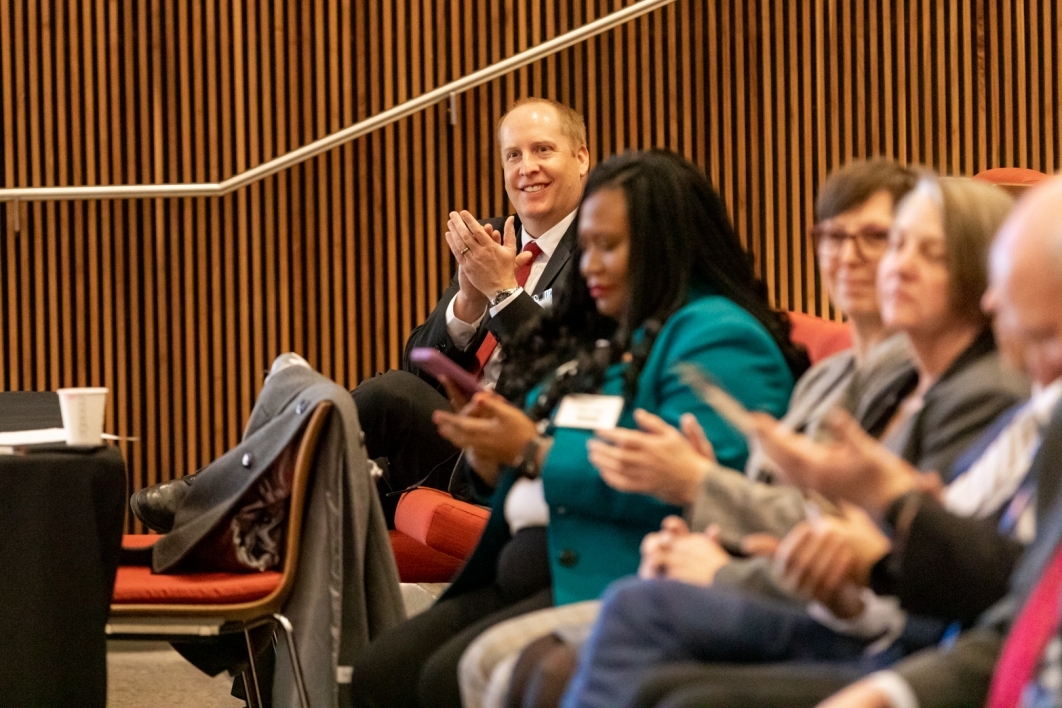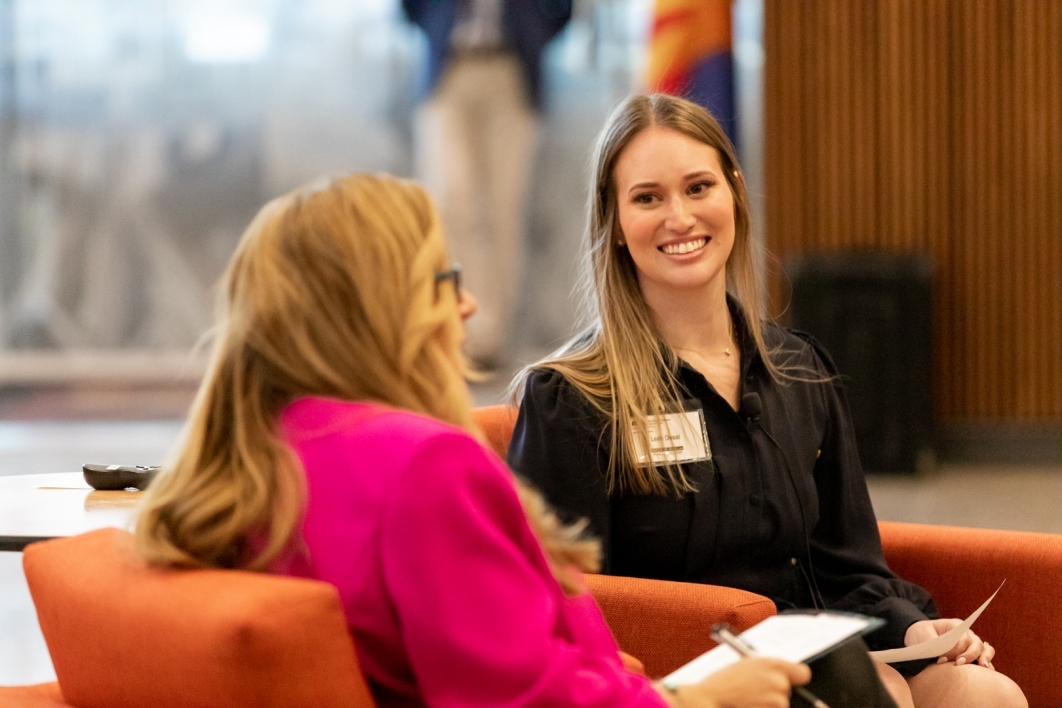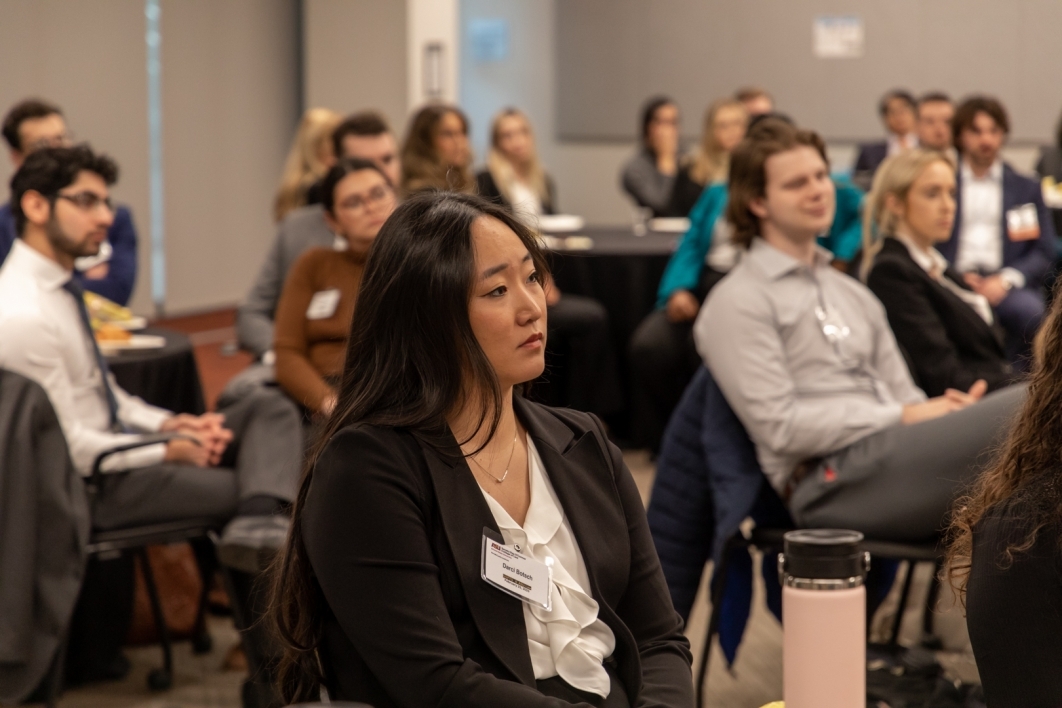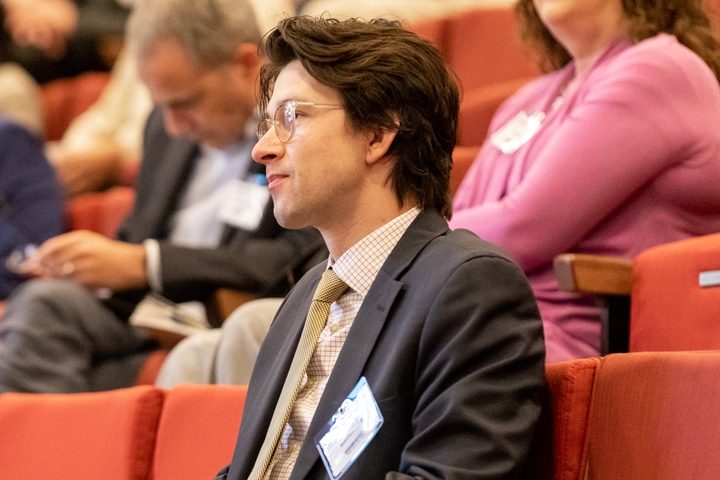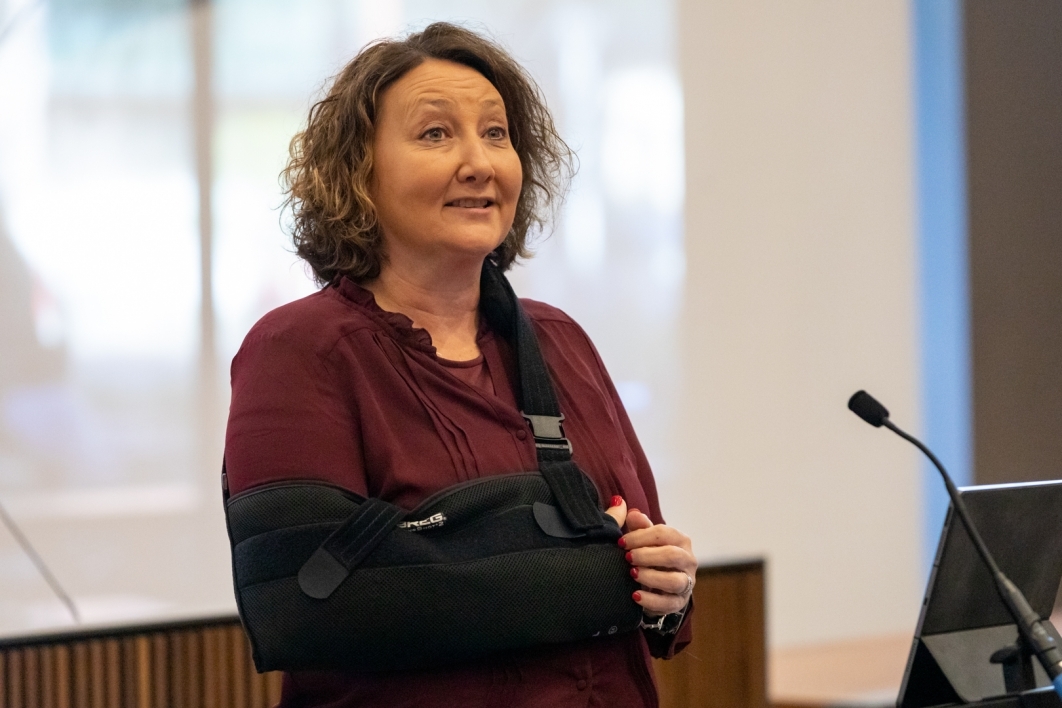ASU Law hosts historic US Patent and Trademark Office hearings
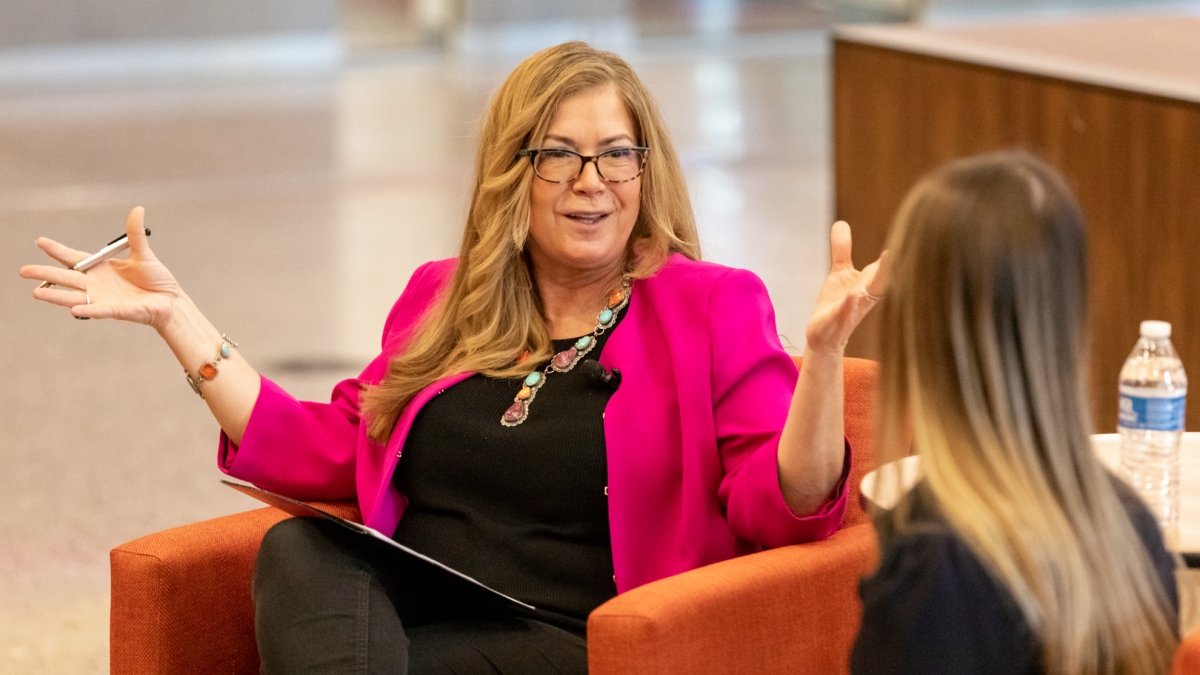
U.S. Patent and Trademark Office Director and Under Secretary of Commerce for Intellectual Property Kathi Vidal took part in a fireside chat and spoke at length about her goals for the agency, including increasing pro bono work and curbing abuses of the system. Photo courtesy ASU Law
The Sandra Day O’Connor College of Law at Arizona State University played host to a historic event on Feb. 23.
Representatives from the U.S. Patent and Trademark Office (USPTO), including USPTO Director and Under Secretary of Commerce for Intellectual Property Kathi Vidal and several Patent Trial and Appeal Board (PTAB) and Trademark Trial and Appeal Board (TTAB) judges, paid a visit to the Beus Center for Law and Society for live hearings — some of the first held since the onset of the COVID-19 pandemic. ASU Law was also the first law school to simultaneously host the sitting director of the USPTO, who participated in a student-led fireside chat during the free, public event.
The USPTO is headquartered in Alexandria, Virginia, with four other regional offices across the country. It is the largest intellectual property office in the world and has existed in some form or another since 1836. That includes over 250 PTAB and TTAB judges with various science or technology specialties, including one veterinary doctor.
Willard H. Pedrick Dean and Regents Professor of Law Stacy Leeds was on hand at the event to deliver opening remarks.
Leeds pointed to ASU SkySong and The McCarthy Institute as two university initiatives that show ASU’s commitment to technology and innovation to fuel economic growth. ASU Law, she added, is one of just 19 law schools with an A-plus rating in intellectual property law.
“It illustrates how important intellectual property is, not only to the U.S. economy but the global economy,” she said.
The PTAB and TTAB held three hearings: The first was an ex parte appeal of an examiner’s rejections of a pending patent application; the second was a trademark cancellation proceeding; and the third was an America Invents Act inter partes review trial proceeding.
Steve Koziol, acting regional director of the USPTO’s Silicon Valley region, said the live hearings are intended to clarify a complicated process.
“These hearings are demystifying the often very complex processes around intellectual property,” he said. “That’s part of why we’re here today.”
His remarks were followed by an overview of the USPTO and PTAB by the latter’s Lead Judge Georgianna Braden.
Vidal later participated in a fireside chat hosted by second-year law student Leah Dosal, a McCarthy Fellow who plans to practice IP and patent law when she graduates in 2024.
As the director, she said she runs the organization with 13,000 colleagues to advance American innovation, often working internationally and here at home to protect the country’s IP.
“We’re doing a lot of work on inclusive innovation across the country, protecting that innovation, making sure the system’s working and having an impact,” said Vidal. “If you’re not bringing solutions to the market, you’re not having an impact.”
Vidal, who has been on the job for 10 months, said some of her goals for the agency include curbing any abuses of the system, creating more robust and reliable IP rights, cutting down barriers for inventors and increasing pro bono work.
According to Vidal, women make up about 13% of all U.S. inventors. She said that when the USPTO meets innovators where they are and works with pro bono organizations to support them, that number jumps to 43% (up from 41% last year.) Those who benefit from pro bono and identify as African American or Black are up 5% to 35% this year. There is also more representation for those who identify as Hispanic, Asian American or Pacific Islander, and Native American. But, as Vidal noted, “We must do better.”
Speaking on patent eligibility, she noted, “There are things you can’t patent in the U.S. that you can in other countries. That’s not good for the U.S. — that’s not good for innovation.”
She also plans to continue listening to stakeholders about what the USPTO and PTAB can do better moving forward to increase innovation.
“I love dissenting views,” she said. “I think it’s what makes us better.”
Dosal said the opportunity to moderate the chat and hear directly from the USPTO’s director about the agency’s direction was “invigorating.”
“It seems clear the USPTO is interested in what stakeholders have to say,” she said. “It’s also nice to hear that diversity, equity, inclusion and access are important to them.”
Like Dosal, third-year law student Matt Lutz plans to practice patent and IP law, which brought him to the event to hear directly from experts in his chosen field.
“This is one of the coolest things I’ve gotten to do during my time at ASU,” he said.
More Law, journalism and politics
Can elections results be counted quickly yet reliably?
Election results that are released as quickly as the public demands but are reliable enough to earn wide acceptance may not…
Spring break trip to Hawaiʻi provides insight into Indigenous law
A group of Arizona State University law students spent a week in Hawaiʻi for spring break. And while they did take in some of the…

LA journalists and officials gather to connect and salute fire coverage
Recognition of Los Angeles-area media coverage of the region’s January wildfires was the primary message as hundreds gathered at…


